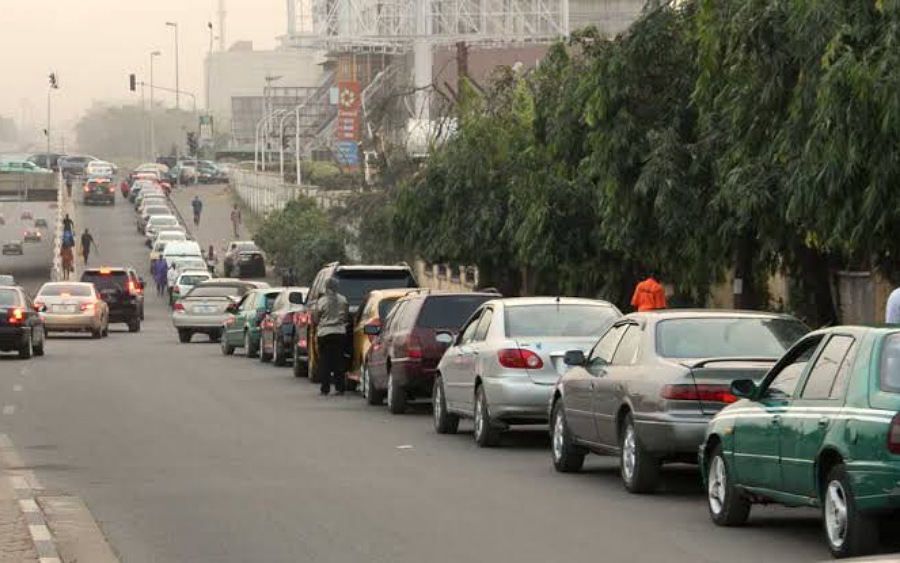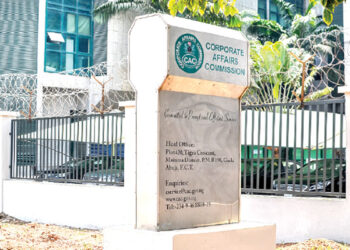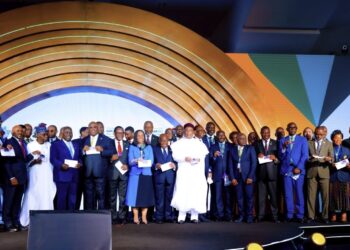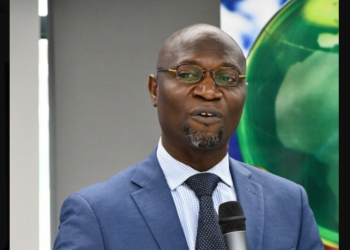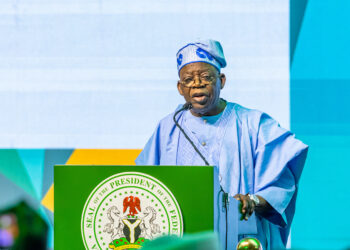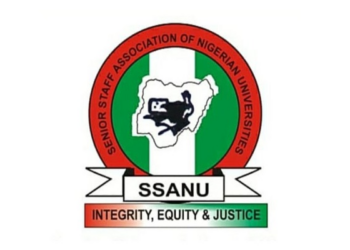Long petrol scarcity accompanied by long queues is dotting the landscape in Lagos and other states as Nigerians wonder why there is a scarcity of premium motor spirit (PMS), popularly called petrol.
For about three weeks, Abuja residents have had difficulty commuting due to fuel scarcity as commuters pay twice what they used to pay to get to work. It appears the queues have now hit Nigeria’s commercial capital, Lagos.
Nairametrics was able to confirm from Lagos residents on Monday, October 24, that long queues have been spotted in fuel stations all over town, as fuel scarcity takes a toll on commuters. The queues appear to have gotten worse in various parts of Lagos on Tuesday spreading from Lekki, Lagos Island to mainland Lagos, including the commercial capital of Ikeja.
Authorities are yet to explain the reasons for the fuel scarcity and queues as of when this article was written. However, the situation appears to be getting worse.
The situation in Abuja is dire, says Mr. Dipo Thomas, an Abuja resident. “We have been struggling to buy fuel for over three weeks now. I remember the Nigerian National Petroleum Company (NNPC) Limited making a statement about bringing over 100 trucks into Abuja for distribution, about a month ago.
“But what we see at fuel stations is different. Most of them lock up their gates and refuse to sell to us, we have to fight, struggle and plead before we buy. The last time I bought fuel, I was at the station for over a day. Sometimes, the fuel stations bring in product and sell but for only a specified number of hours, after that, they close shop.”
NNPCL statement
During a media briefing on October 10, the Group Executive Director, Downstream at NNPCL, Engr Adeyemi Adetunji said that fuel scarcity in Abuja would soon come to an end as fuel trucks were being brought in to the capital city.
He said: “We want to inform the general public that more petroleum trucks have started arriving in Abuja and other destinations as the flood that earlier restricted the movement of trucks has receded. As of yesterday, October 11, 2022, 146 petroleum tanker trucks have arrived at the depot for dispatches into Abuja and the environs.”
However, Abuja residents are still experiencing fuel scarcity today and this has led to a slowdown of economic activities in the capital city. Commuters are unable to cope with rising prices of commodities and increased transportation fares to work on meager earnings.
Nairametrics had earlier reported that the National Bureau of Statistics (NBS) has said that fuel costs have increased since September, with petrol selling for as high as N191 per liter in some states, and diesel selling for as high as N789.90 in some states.
Other states
Although Abuja has been experiencing fuel scarcity since the beginning of October, Lagos residents started experiencing it recently.
- Funke Oladapo a Lagos resident, told Nairametrics that she found it difficult to get to work on Monday, October 24, due to fuel scarcity and the hike in public transportation fares.
- According to her, bus drivers were complaining about their inability to buy fuel, which caused a stall in commuting in some parts of Lagos.
- Nairametrics also tracked some statements from Nigerians on Twitter, regarding fuel scarcity across the country and it turns out that Nigerians living in Bayelsa, Ondo, Kaduna, and Kano are complaining about fuel scarcity.
Bottomline
Since the NNPCL has said prior to this time that floods causing restricted movements of petrol trucks have receded in Kogi state, Nigerians are wondering why there is fuel scarcity.
- Bayelsa state seems to be a different case, this is because due to flooding in the state, access roads have been cut off and no new supplies are able to go into the state.
- Tekena, a Bayelsa resident told Nairametrics that in Bayelsa state, petrol is sold on the black market for as high as N1500 per liter, because there are no supplies as a result of flooding.
- But in other states where there is fuel scarcity, nobody seems to have tangible reasons why this is happening. The authorities are silent, fuel marketers are silent, and Nigerians are left to bear the brunt.

